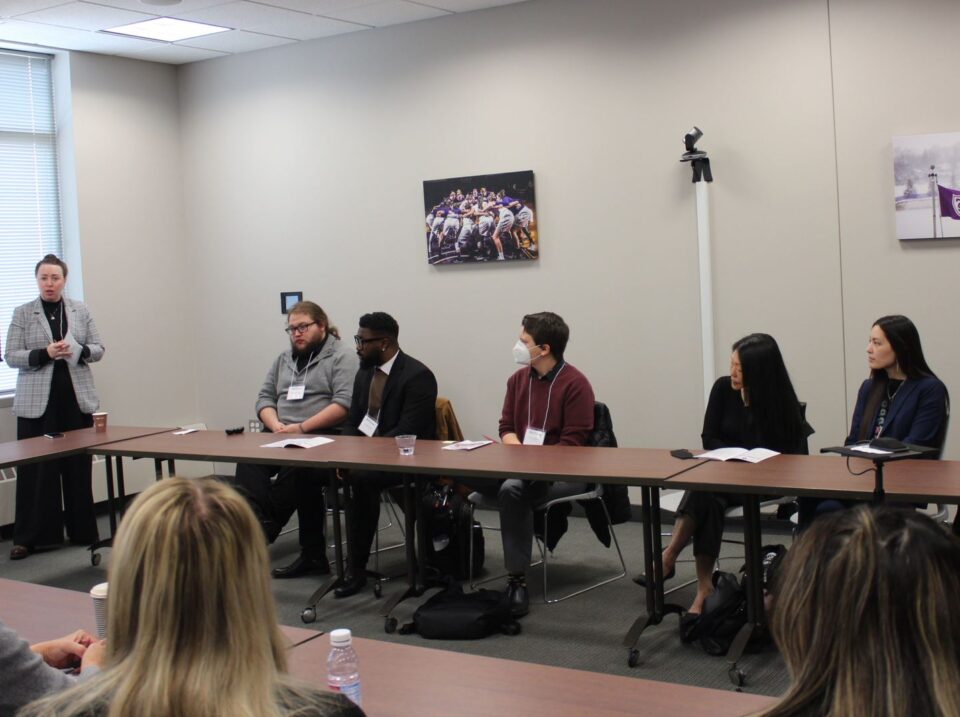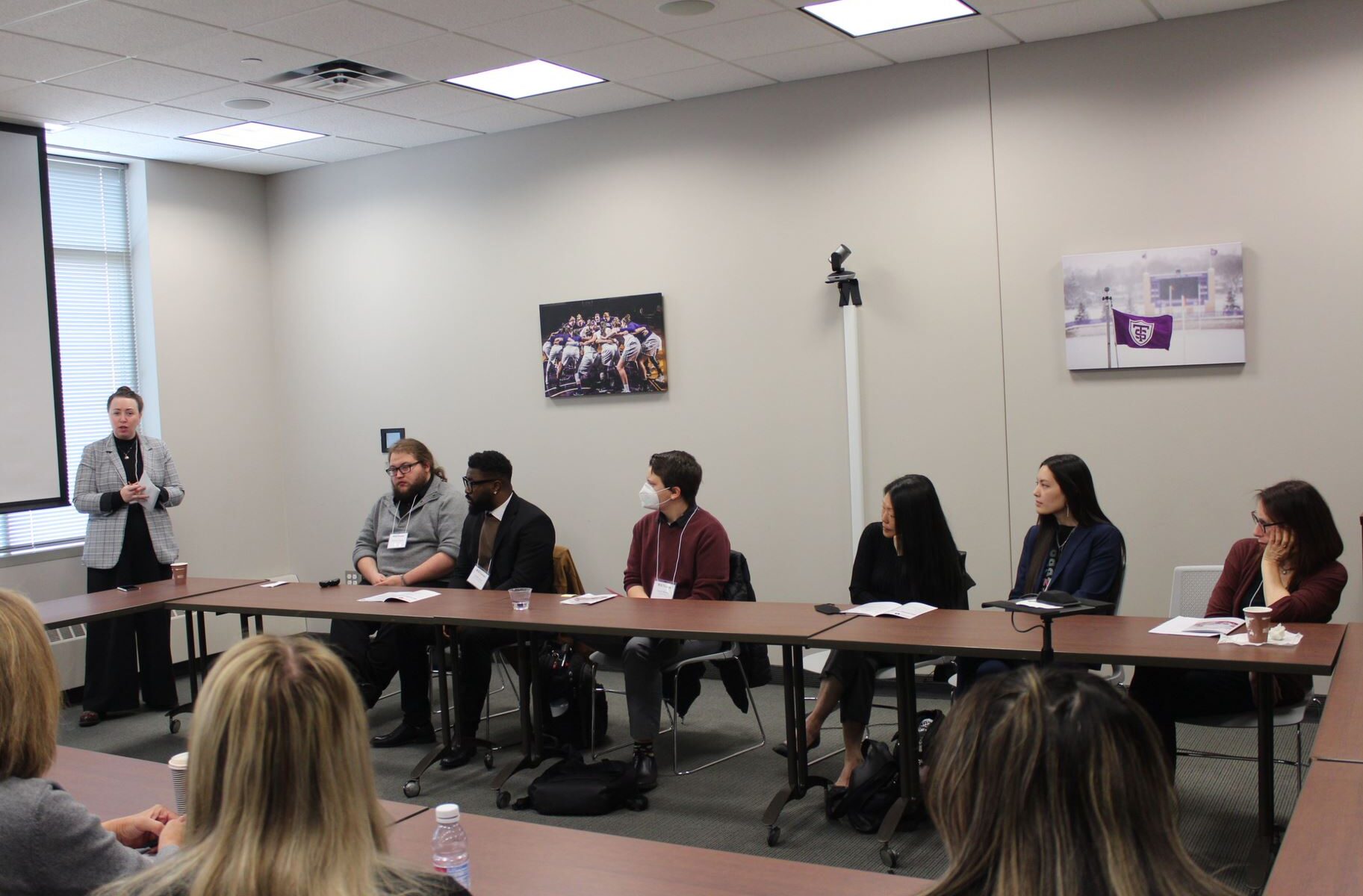
Communication students were given an opportunity to showcase their work, receive feedback and network within their field at the 29th Annual Undergraduate Communication Research Conference Friday in the Anderson Student Center, consisting of three student presentation sessions and a keynote address.
The UCRC, which had been canceled the past two years due to the COVID-19 pandemic, is a celebration of undergraduate research in all areas of the communication discipline, bringing together students from colleges and universities from across the upper Midwest, including: St. Thomas, Bethel University, University of Wisconsin-Madison and more.
Students gave ten-minute presentations on their topic to faculty members from different institutions, and Michael Butterworth, the director of the Center for Sports Communication and Media at the University of Texas at Austin and author of “Baseball and Rhetorics of Purity: The National Pastime and American Idenity During the War on Terror,” was the keynote speaker.
Following the presentations, students received feedback and notes from faculty members and audience members were encouraged to ask questions. The presentations were open to the public.
In the first round of speakers, Thomas Koppy, a senior at Winona State University, presented his findings on a veteran’s perspective of popular protest music.
Koppy found that, over time, the intended meaning behind songs like Bruce Springsteen’s “Born in the U.S.A.,” which was written in protest of the Vietnam War and the politicians who supported the war, has been twisted to be patriotic, while the original meaning has been buried.
“I think it could be a threat to the artist’s goal and who they want to stand for,” Koppy said. “Like Rage Against the Machine, who has numerous protest songs. So, it would be interesting to (see the result of that) in another 20 years and see how it has been misinterpreted and who they wanted to be remembered as.”
Three papers were awarded the Top Paper Award: “Inside ‘Inside Out’” by Bella Bot, Morgan MacDonald, Alli Walburg and Anja Wood from St. Thomas; “Tearing Apart a Dead Man in the Middle of the Woods: Romanticism and Realism in the Critical Responses to Jon Krakauer’s ‘Into the Wild’” by Zachariah Walker from Bethel University; and “Redefining Negligence: Applying Apologetic Image Repair Theory to Ronald Reagan’s 1987 Address to the American Foundation for AIDS Research” by Casey Moerer from Macalester College.
Between sessions, lunch was served and attendees listened to a presentation from Butterworth, whose research explores the connections between rhetoric, democracy and sport, with particular interests in national identity, militarism and public memory.
Buttersworth addressed the importance of sports communication in 2020 during his presentation on the topic “Trump, Covid and Justice: The Impact of Sports Communication in the Wake of ‘2020.’” He also emphasized the important role sports played throughout the pandemic, Black Lives Matter protests and the 2020 Presidential Election.
“2020 will rhetorically signify much more for us than just the calendar year of 2020,” Butterworth said. “It will, over the course of time … become a rhetorical shorthand for an entire era and set of implications for what that has meant for us.”
Butterworth highlighted how sport and communication were linked when associations like the NBA, WNBA, MLB and NCAA football reacted publicly during the pandemic and other national events in 2020. He said MLB’s decision to support the BLM movement and college football’s choice to continue play during the pandemic reflected viewers’ feelings.
“I think it’s very clear that sport is a communicative phenomenon,” Butterworth said. “It reflects advantages and challenges … our culture and politics. And I think it’s very clear that there are links between sports and democracy.”
Butterworth concluded his presentation by re-addressing how intertwined sports and sports media have become in our everyday lives. Saying separating the athletes from current events is impossible.
“I think we’ve seen in so many ways, there are just too many intersections between economics and politics and culture,” Butterworth said. “I think that we’re really seeing an unprecedented convergence of issues that happened in the year 2020.”
Scout Mason can be reached at maso7275@stthomas.edu.
Joe LaPorte can be reached at lapo7605@stthomas.edu.
Macy Berendsen can be reached at macy.berendsen@stthomas.edu.
Elijah Todd-Walden can be reached at todd5861@stthomas.edu.

